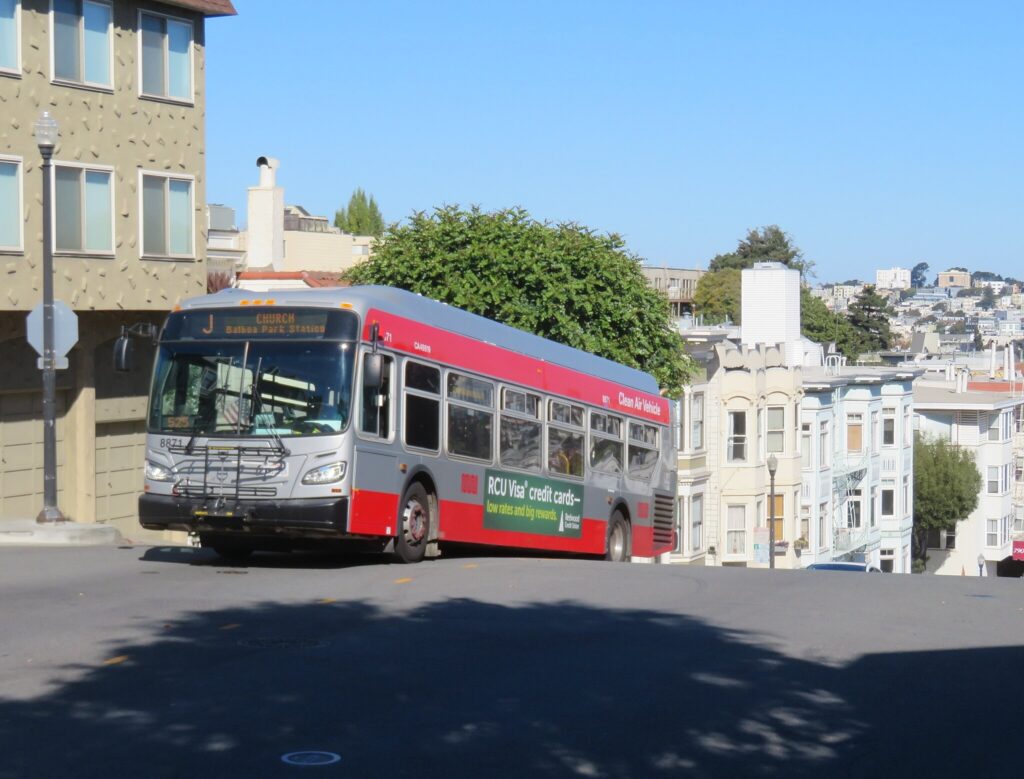The Board of Supes Land Use and Transportation Committee approved a resolution today that would put the board on record supporting Muni’s proposal to let private developers build market-rate housing and commercial projects on public land.
The panel voted 3-0 to send the resolution to the full board after Sup. Chyanne Chen made amendments noting that in the past, Muni surplus land has been used for affordable housing and encouraging the agency to consider alternatives to pure for-profit projects.
Several speakers, including John Avalos, director of the Council of Community Housing Organizations, said that public land should be prioritized for non-market housing. Putting high-end housing on that land, he said, can lead to rising property values nearby, and displacement of low-income communities.

David Woo, representing Soma Pilipinas, said that “public land must be used for public good, not private development” and that instead of turning Muni lots over to developers, the city should “redistribute the enormous wealth that exists in San Francisco.”
Woo’s comments, really, represent the crux of this debate.
Sup. Myrna Melgar, who sponsored the resolution, made clear that the goal of the development should be first and foremost revenue generation for Muni, which is facing a massive structural deficit that threatens the system’s ability to provide a crucial service. Without robust transit, everyone agrees, the city can’t function, much less recover from COVID.
“It’s an issue of generating income,” she said. As for affordable housing, “that subsidy should come from somewhere else.”
Development plans, she said, should “first and foremost address that health of the transit agency.” I get it.
Wade Wietgrefe, a Muni staffer who presented the agency’s position, admitted that turning public property over to developers is not a solution to the immediate budget crisis. It’s part of a “100-year plan.” At best, a few years down the road, the agency’s estimates suggest that Muni might net $12 to $47 million a year, less the amount that is poured back into upgrading aging facilities.
Next year’s deficit is estimated at more than $300 million.
The problem here is that two groups with goals that are essential for San Francisco’s future—affordable housing and functional transit—are forced to fight over a limited pool of money.
That’s happening while the very, very rich in the city and the region are reaping massive, massive, multi-billion rewards under the new Trump administration.
They were rich beyond anything anyone could need before Trump; now they are even richer. And under Trump’s budget plans, people with income of more than $600,000 a year will see huge tax cuts (while people with incomes of less than $100,000 will see tax increases).
Gov. Gavin Newsom isn’t doing anything about it. Mayor Daniel Lurie isn’t doing anything about it. So the folks who are and should be allies, supporters of Muni and supporters of affordable housing, are left to battle over the crumbs.
This is a massive civic disgrace. And it’s just the start. We are facing cuts to public health, public works, social services, education … it’s a total disaster.
We could solve Muni’s problems easily with some creative revenue solutions. We could eliminate the budget deficit that means layoffs, cuts to essential services, and a structural crisis for public education.
But nobody is talking about this.
Here’s my challenge to all the supervisors who hate the situation as much as I do. Could somebody please introduce this resolution:
WHEREAS, economic inequality is an existential threat to society, and
WHEREAS, San Francisco is home to 50 billionaires, with a net worth of $185 billion, and
WHEREAS, most of the richest people in the city have seen their wealth increase profoundly under the Trump Administration, and
WHEREAS, even a modest local income tax and wealth tax on the rich would solve the city’s budget deficit problems, protect vital services, and fund both Muni and affordable housing as well as increase public safety funds, and
WHEREAS many cities, including New York and Philadelphia, help fund public services with taxes on the income of the most wealthy residents, and
WHEREAS the state of California does not allow cities or counties to enact taxes on income or wealth, and
WHEREAS that is making it impossible for local government to continue to function at a reasonable level without regressive sales taxes and fee hikes that hurt the poor, the working class, and small business,
THEREFORE, BE IT RESOLVED That the City and County of San Francisco calls on the state Legislature to enact enabling legislation that would allow San Francisco to impose a progressive tax on incomes of more than $500,000 a year and a modest wealth tax on fortunes of more than $50 million, and
BE IT RESOLVED that the City and County of San Francisco calls on State Sen. Scott Wiener and State Assemblymember Matt Haney to introduce and fight for this legislation.
At least let’s make all the supes vote on it. At least for once we would be talking about the real issue.




